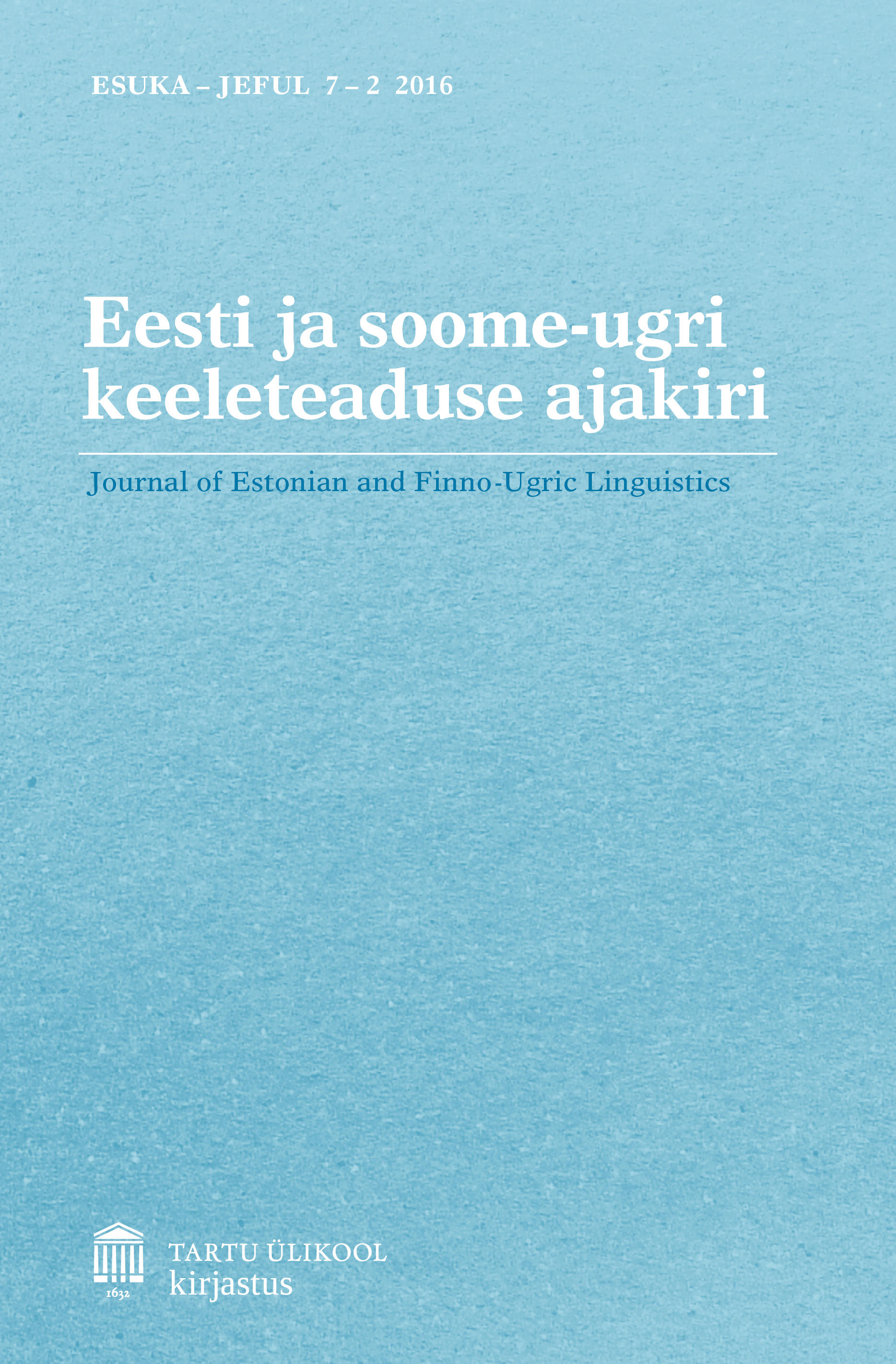Episteemilise modaalsuse leksikaalsete väljendusvahendite tajumisest: <i>arvatavasti</i>, <i>äkki</i> ja <i>võib-olla</i>
DOI:
https://doi.org/10.12697/jeful.2016.7.2.08Keywords:
episteemiline modaalsus, leksikaalsed markerid, tõenäosuse tajumine, eesti keelAbstract
Kokkuvõte. Artiklis on vaatluse all episteemilise modaalsuse leksikaalsete väljendusvahendite (markerite) arvatavasti, võib-olla ja äkki tõenäosuse tajumine. Vaadeldakse, kui palju oleneb markerite tõenäosuse tajumine kontekstist, näiteks tugevast või nõrgast eeldusest ehk olemasoleva informatsiooni rohkusest, markeriga lause agendi soost ja keelevälistest teguritest ehk vastajate soost ja vanusest. Markerite tõenäosuse taju uurimiseks koostati internetikatse, millele vastas 328 eesti keelt kõnelevat inimest, kellest noorim oli alla 18-aastane ja vanim üle 60. Tulemustest selgus, et kolmest markerist tajutakse kõige tugevamat tõenäosust väljendavana markerit arvatavasti, pisut nõrgemana tunnetatakse võib-olla ja äkki tõenäosust. Kontekstil on markerite tõenäosuse tajumisel oluline roll: tõenäolisemana tajutakse lauseid, mille kontekst on tugevama eeldusega, mitmetähendusliku kontekstiga lauseid tajutakse aga hoopis nõrgema tõenäosusega. Markerite tõenäosuse tajumist mõjutavad ka keelevälised tegurid, nagu vastaja sugu ja vanus.
Abstract. Laura Tüüts and Reili Argus: The comprehension of lexical epistemic markers: the Estonian adverbs arvatavasti (‘probably’), äkki (‘perhaps’) and võib-olla (‘maybe’). The paper analyses the comprehension of epistemic modality markers arvatavasti ‘probably’, võib-olla ‘maybe’ and äkki ‘perhaps’. The study focuses on the connections between the nature and the amount of context in the comprehension of epistemic markers which belong to the class of markers with average degree of certainty. In addition to the influence of context, factors like the gender of the agent in the context sentence, as well as the respondent’s gender, age, education and foreign language skills have been analysed according to different markers and context types. Answers of 328 Estonian-speaking respondents (aged 18–60) revealed that the marker arvatavasti ‘probably’ has the strongest epistemic value, while the other two markers under observation have a somewhat weaker epistemic value. Context has a big impact on the comprehension of all three markers: sentences with stronger premises were comprehended as expressing stronger certainty, and the sentences with ambiguous context were comprehended as expressing the weakest certainty. Factors like the gender of the agent in the context sentence as well as the respondent’s gender have some influence on the comprehension of epistemic markers, while factors like foreign language skills and education do not have such a strong effect on the comprehension of epistemic modality markers.
Keywords: epistemic modality; lexical markers; comprehension of probability; Estonian


